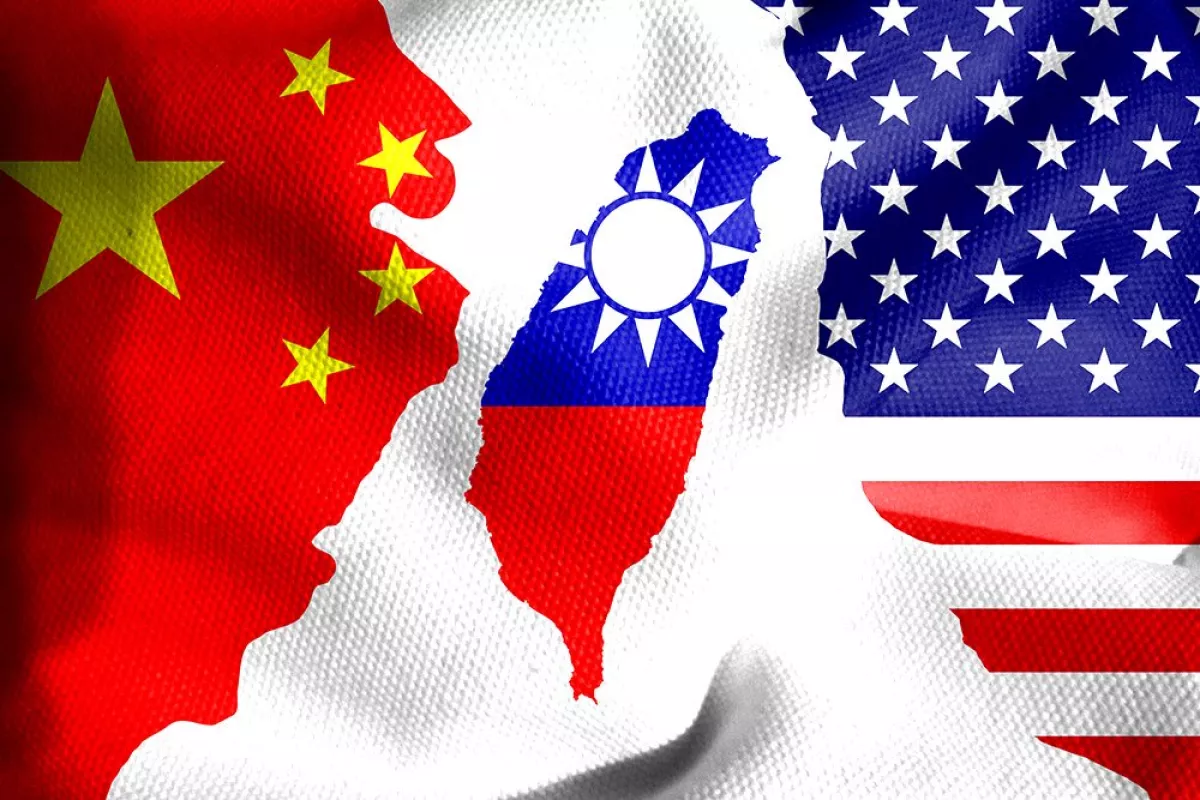US sparks tensions in Asia-Pacific region China as primary target
On September 4, Raymond Greene, Director of the American Institute in Taiwan, announced that Washington has not dismissed the possibility of collaborating with Taiwan on weapon production. Greene, often referred to in the US as the "chief diplomat" or "de facto ambassador" to Taiwan, highlighted that “the United States is building a latticework of alliances in the Indo-Pacific to enhance our deterrence capabilities.”
It is quite revealing that these anti-China narratives are emerging just after Jake Sullivan, the US National Security Advisor, concluded a three-day visit to China in late August. This makes it clear that Greene's comments against Beijing are not a spontaneous reaction. Washington's stance towards Beijing remains aggressive. For example, although Sullivan's visit was portrayed as an effort to reshape US-China relations and discuss a potential future meeting between President Joe Biden and President Xi Jinping, Washington has escalated tensions as usual.
Recently, the US imposed sanctions on 42 Chinese companies, accusing them of supporting Russia's military-industrial complex. In response, Beijing condemned these "illegal and unilateral sanctions" against countries that maintain balanced trade and economic ties with Russia, claiming they serve the "selfish interests" of China’s adversaries.
Regarding the outcomes of Jake Sullivan's talks with Chinese Foreign Minister Wang Yi, the scant information available indicates that the parties agreed to hold a video call between the commanders responsible for hot spots in the Indo-Pacific region at a "suitable time." This, according to Washington, could help prevent conflict, particularly in the Taiwan Strait. Wang Yi, on the other hand, expressed dissatisfaction with the ties between Washington and Taiwan, as well as the White House's "export controls" targeting Chinese semiconductor manufacturers.
Thus, Green's message, it should be noted, did not arise in a vacuum but continues the confrontational stance of the American administration aimed at escalating tensions in the Taiwan Strait. This is further underscored by the visit of an "unofficial" US delegation to Taiwan in May 2024, which attended the "inauguration" ceremony of Lai Ching-te. Lai expressed hope for continued "comprehensive cooperation in security, trade, and technological fields" between Taiwan and the US, aiming to elevate the "rock-solid Taiwan-US partnership to an even higher level." At the same time, Michael McCaul, Chairman of the US House Foreign Affairs Committee, referred to Taiwan as a "thriving democracy" and outlined Washington's plans to " continue to stand by our steadfast partner and work to maintain the status quo across the Taiwan Strait."

A few weeks later, the US, Canada, the Philippines, and Japan conducted anti-China naval exercises in the South China Sea. Simultaneously, the US State Department approved a potential sale of drones and missiles to Taiwan valued at around $360 million. According to the Pentagon, this "will contribute to maintaining political stability, military balance, and economic progress in the region." In August, several media outlets reported on the US's plans to establish a network of military bases and airfields in the Pacific. That same month, there were reports about placing five bases in Taiwan for the deployment of anti-ship missiles.
So, as mentioned above, Greene's statement should come as no surprise. Moreover, on September 4, the US took another step in its anti-China stance. Specifically, the US Department of Justice charged former New York State Governor’s aide Linda Sun with acting as an "agent of the People's Republic of China and the Chinese Communist Party." She was arrested along with her husband. Sun was charged with " violating and conspiring to violate the Foreign Agents Registration Act, visa fraud, alien smuggling," while her husband faced charges of " money laundering conspiracy, as well as conspiracy to commit bank fraud and misuse of means of identification."
This move continues a series of accusations against US citizens for working with China. For instance, in mid-August, US military service member and intelligence analyst Korbein Schultz pleaded guilty to charges of conspiring to sell military secrets to China (sentencing is scheduled for January 2025).
The Chinese Ministry of Foreign Affairs, declining to comment on Sun's arrest ("this is a domestic matter for the US"), has expressed opposition to the "malicious linking" of this issue with China and its "vilification."
Thus, it is clear even to the naked eye how tensions are being ignited in the Asia-Pacific region. Although the US consistently claims support for the "One China" policy, in reality, it continually escalates the situation in the region. Evidence of this includes the spread of information about potential joint weapon production with Taiwan. Against this backdrop, Washington has attempted to ease the situation it has exacerbated by deliberately leaking information about considering sending Michael Chase, Deputy Assistant Secretary of Defense for China, Taiwan, and Mongolia, to the annual September security forum (September 12-14) in Beijing.








